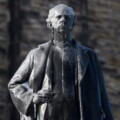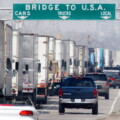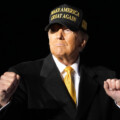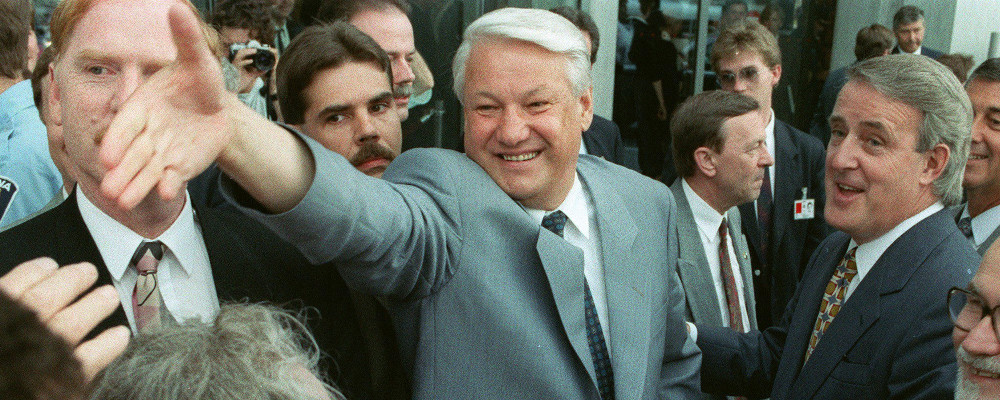Review of Collapse: The Fall of the Soviet Union
Author: Vladislav Zubok
Publisher: Yale University Press, 2021
When the Soviet Union disappeared in 1991, it’s hard to convey the shock to anyone who didn’t live through a part of the Cold War after 1950.
How could an empire expire that had existed since 1917 and evaporate before our eyes; a federal union that produced an army that turned back the Nazis in World War II, that put the first human into space in 1961 and controlled an area that spread out over 11 time zones.
The Soviet army was big enough to hold much of Eastern Europe from the Baltics to the Adriatic. Even the great Nobel Prize economist Paul Samuelson, writing in the early 1960s, forecast that the Soviet Union was on the verge of outproducing U.S. GDP by as early as the 1980s. Even CIA analysts finally got it right in early 1991 that the Soviet Union was in trouble but never saw the end as bloodless.
In hindsight, the causes now seem apparent. The economy of the USSR, along with whatever was left of communist ideology, had ended because the Soviet empire was exhausted from decades of economic and political stagnation and worn down by trying to keep up with Western technology and military spending. The political corruption and economic rot were so deep that when the end came, it came quickly without firing a shot. The inevitable finally happened.
From that perspective, the West rationalized that enlightened Soviets had had enough of Marxism and Leninism and started clandestinely passing around photocopies of the writings of free market economists such as Milton Friedman and Friedrich Hayek. The power of liberal markets and democracy had finally sunk in. Francis Fukuyama was right; the end of history in the Soviet Union had arrived, liberalism won, and communism failed.
In his new book, Collapse: The Fall of the Soviet Union, Vladislav Zubok, a professor of international history at the London School of Economics, was dissatisfied with traditional explanations about the Soviet demise. He believed we needed a few decades to pass to get a proper perspective on what happened. In the end, he concluded we got the story wrong.
If we got it wrong about the invincibility of the Soviet Union, perhaps we also missed why it collapsed.
For Zubok, there was nothing inevitable or deterministic about the fall. He demolishes the idea that the U.S. policies during the Cold War made the Soviet Union “retreat and surrender,” such as President Reagan’s Strategic Defence Initiative or Star Wars. Or that Gorbachev’s glasnost policy had discredited communist ideology. He also dismisses evidence of an imploding economy or strong independence movements in the 15 Soviet republics.
So what did happen?
Over 500 pages, Professor Zubok carefully goes through the evidence and makes a strong case that lays the primary cause at the feet of Mikhail Gorbachev and perestroika; the idea that reform would come from the bottom up by restructuring the economic and political system through incentives, decentralization and reward for excellence and punishment for failure. In short, the end of central planning.
Gorbachev, who was enormously popular in the West, quickly fell out of favour in his own country, leading to a failed coup and his brief arrest with the dissolution of the empire on December 25, 1991. The Soviet Union collapsed not from external factors but from internal political conditions and the refusal of Gorbachev to use force to stop his opponents.
In 1990-91, Gorbachev allowed his rival Boris Yeltsin, head of the Russian Republic, to lead millions of liberal-minded intellectuals, provincial apparatchiks, and even KGB military officers, to bring down the communist party while pulling Russia out of the Soviet Union, the lynchpin that held the empire together. Gorbachev’s intentions were well-meaning, but his weak leadership and indecision doomed the empire and his political career as chairman of the Soviet Union.
Gorbachev also had the misfortune to lead at a time of falling resource prices, the Chernobyl disaster, falling life expectancy, and a demographic crisis of declining population and rapid inflation as Moscow was forced to print enormous sums of rubles. It is hard to imagine that a third of national revenues came from taxes on the sale of vodka.
Whatever lessons from the collapse were not lost on Putin, who said, “the demise of the Soviet Union was the greatest geopolitical catastrophe in the twentieth century.” He has structured his government to avoid the same mistake. Gorbachev forgot the lesson that the Soviet Union contains more than the elites in Moscow and St. Petersburg, who make up only a quarter of the population.
Most live in poorer industrial towns nostalgic for the Soviet past and multiethnic non-Russians in the North Caucasus, including Chechnya and South Siberia. People in these regions overwhelmingly support Putin mainly because they depend on subsidies from Moscow and follow traditional religious values. Putin is not only ignoring the urban educated class but has actively encouraged them to leave and used violence and force to crush any opposition.
Today Gorbachev is a forgotten figure who tried a political comeback in 1996 but failed miserably, still blamed for losing the Soviet Union. There may come a day when Gorbachev will be respected for his reluctance to use force and save his country from a disastrous civil war. He still believes that world problems can be solved through compromise and dialogue.
But the failures of Gorbachev were not lost on Putin, who understands that a firm hand is famous and that the majority favours order over the messiness of compromise and democratic freedoms. Ironically, Gorbachev supported Putin’s invasion of Crimea in 2014 and the Ukraine war. Once asked by a BBC reporter if he talks to Putin, Gorbachev responded that Putin doesn’t need his advice, “he knows everything.”
Perhaps Professor Zubok is wrong, and there are no single critical factors for why a nation or an empire collapses other than all things go the way of dust in time, in that all systems carry the seeds of their destruction. The Italian philosopher Giambattista Vico posits that all civilizations pass through three phases, the divine, the heroic, and the human, and finally, he calls “the barbarism of reflection.”
Zubok’s book falls into the category of Jared Diamond’s Collapse: How Societies Choose to Fail or Succeed or Arnold Toynbee’s Decline and Fall of the Roman Empire, where the search is for that elusive cause, whether environmental degradation, religion, or the Soviet case, the fatal human flaw. Perhaps it is impossible to attribute any cause and effect to complex systems where a small random trigger can set off something described as a “phase transition.”
This is what Nassim Taleb tried to explain in his book The Black Swan, where we are trapped in a “narrative fallacy” of satisfying stories we tell ourselves after the fact. For the time being, Professor Zubok has shown that we still desire answers because some of them might be better than others. Then again, just as the future is unknowable, the past seems more so.
Recommended for You

Rudyard Griffiths and Sean Speer: The future of news in Canada: A call for rethinking public subsidies

J.D.M. Stewart: Prime Minister Laurier does not belong in the dustbin of history

Alicia Planincic: Canada’s economy remains firmly hitched to America

‘Hopes and fears’: The Hub reacts to President Trump’s inauguration and what it means for Canada




